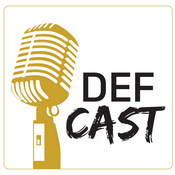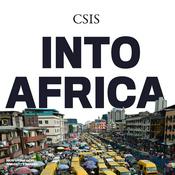58 épisodes
58. Ross Centers: The Strategic Moon, Safety Zones, Property Rights and Golden Dome
28/8/2025 | 1 h 16 minIn this episode, Peter Garretson sits down with Ross Centers, CEO of Ethos Space explore his ambitious vision for creating large-scale space infrastructure. The conversation covers the Space Resources program at the Colorado School of Mines, the concept of a planetary sunshade, and Center’s work with the Planetary Sunshade Foundation—including how this ethical 'north star' shapes Ethos Space’s mission. They dive into critical infrastructure needs including landing pads (to avoid what Center’s refers to as 'hypersonic blunderbusses'), refueling stations, and Lunar Data centers. The discussion explores the national security implications of the Moon and the importance of securing the “Strategic Flank” in the Golden Dome framework. The converstion also examines space property rights and the necessity of establishing “facts on the ground,” drawing parallels between Billy Mitchell’s historical aviation vision and today’s Cislunar space challenges. Finally, they close by discussing the coming transformation of the U.S. Space Force from a “brownwater” force to a deep-space, “bluewater” force.- In this episode, Peter Garretson talks with Dr. Sanjay Vijendran, Director of Space Energy Insights, and former lead for the European Space Agency's (ESA) groundbreaking SOLARIS Space-based Solar Power R&D Initiative. After a brief aside to discuss Sanjay's Mars work, they explore the basics of Space Solar Power: why it is interesting, and why Elon Musk's efficiency-focused critique gets it wrong. They discuss the importance of capacity factors, and how ESA changed the game by getting the energy industry involved in cost-benefit studies, which catalyzed new startups and investment. The conversation covers the current state of play: who are the startups, who is receiving funding and how much, and the diversity of concepts being pursued—including Overview Energy, Aetherflux, Reflect Orbital, VirtusSolis, Solaren, the UK's Space Solar, Australia's Solar Space Technologies, Volta, Starcatcher, as well as synergies with orbital data centers, space logistics, and in-space assembly and manufacturing. They explore longer-term work Sanjay sponsored with AstroStrom on setting up an industrial base on the Moon to build solar power satellites (see video), and examine near-term environmental benefits and challenges. They discuss Space Solar's advantages in energy payback time, energy return on energy invested, carbon return on carbon investment, land use, water use, and thermal pollution—and the need for government and intergovernmental planning models to include space solar power. They discussion also covers geopolitical and geoeconomic implications of leading or following, national security implications (including energy sovereignty), and energy security opportunities for the developing world, as well as near-term demos by AFRL, JAXA, China, and commercial firms. They conclude by discussing the International Conference on Energy From Space happening later this year.
- In this episode, Peter Garretson talks with Dr. Philip Lubin. Dr. Philip Lubin from the
UCSB Experimental Cosmology Group. Dr. Lubin discusses his groundbreaking work in laser technology and planetary defense, emphasizing the critical importance of protecting Earth from asteroid and comet impacts through innovative methods like directed energy systems and fragmentation techniques.
He introduces his unified planetary defense system concept called “Pulverize It”(PI), which utilizes existing launch vehicles, and explores the potential of large-scale laser arrays known as “DE-STAR” for various space applications, including power transmission and enabling faster space travel. The conversation focuses on developing a practical and affordable planetary defense system using current technology, with plans to present this concept to key decision-makers.
Find Dr. Lubin’s book on Directed Energy here, his list of papers here, and various simulation videos of Terminal Planetary Defense on their YouTube channel. - In this episode, Peter Garretson hosts Dr. Fred Kennedy, CEO of Dark Fission. Fred discusses his career and vision for space exploration, emphasizing the importance of developing nuclear thermal propulsion technology to enable more ambitious missions beyond low Earth orbit. He explores the historical challenges and delays in nuclear thermal propulsion development, while advocating for investment in all forms of nuclear propulsion and power systems to maintain U.S. competitiveness in space.
They conversation covers a number of advanced nuclear propulsion ideas and explores the story behind ROAR and DRACO at DARPA, including the unfortunate recent demise of DRACO. They also discuss the Space Development Agency’s (SDA) original ‘deterrence layer,’ including an Advanced Maneuvering Vehicle. The episode concludes with discussions about funding strategies, potential partnerships, the need to remove regulatory barriers to allow American ingenuity to drive space exploration forward, and a grand strategy discussion about humanity’s expansion into the solar system. - In this episode Peter Garretson speaks with Senior Master Sergeant Benjamin Johnis, a Personnel Recovery Program Manager and former Air Force veteran, about rescue and personnel recovery in space. The discussion focused on space rescue capabilities and requirements. Benjamin presents his research on space rescue operations and discusses the challenges of developing a dedicated space rescue program, including his AFIT study on Lunar Search and Rescue (see related discussion).
The conversation covered technical aspects of space rescue vehicles, including the Dream Chaser and various existing systems, while addressing the geopolitical implications of space rescue capabilities and the need for international cooperation, particularly regarding China's advanced space programs. Benjamin emphasized the importance of establishing a Space Rescue Professional capability and outlined a 10-year plan for developing search and rescue capabilities in Cislunar space, while advocating for a Presidential Policy Directive to guide and coordinate government efforts in space rescue operations.
Related reading: Read his Constellation Design Evaluation for Lunar Surface Navigation, and examination of Commercial Space Rescue Vehicle Reentry Concepts. Look for his forthcoming publications in Air & Space Operations Review on developing USSF Space Rescue Professionals, and his AFIT PhD dissertation “The Space Rescue Blueprint: An Engineering Guide for In-Space Contingencies.”
Plus de podcasts Gouvernement
Podcasts tendance de Gouvernement
À propos de Space Strategy
Interested in catalyzing policy to shape the next strategic frontier? Join host Peter Garretson as he explores insights from space thought leaders across the private sector, military, government, and academia to help define a strategic vision for U.S. space policy.
Site web du podcastÉcoutez Space Strategy, Les voix de l'enfance protégée ou d'autres podcasts du monde entier - avec l'app de radio.fr

Obtenez l’app radio.fr gratuite
- Ajout de radios et podcasts en favoris
- Diffusion via Wi-Fi ou Bluetooth
- Carplay & Android Auto compatibles
- Et encore plus de fonctionnalités
Obtenez l’app radio.fr gratuite
- Ajout de radios et podcasts en favoris
- Diffusion via Wi-Fi ou Bluetooth
- Carplay & Android Auto compatibles
- Et encore plus de fonctionnalités


Space Strategy
Scannez le code,
Téléchargez l’app,
Écoutez.
Téléchargez l’app,
Écoutez.





































